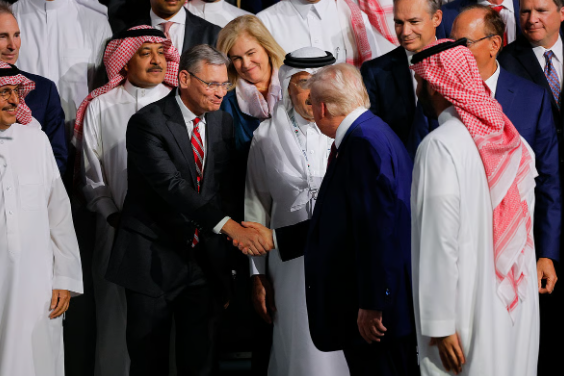The Trump administration is reportedly negotiating a deal that would allow the United Arab Emirates to import more than one million advanced Nvidia AI chips, significantly surpassing the export limits imposed under Biden-era regulations, according to Bloomberg News.
The prospective agreement would permit the UAE to receive 500,000 of Nvidia’s most powerful chips annually through 2027. About 20% of those chips would go to Abu Dhabi-based artificial intelligence firm G42, while the rest would be allocated to U.S. companies operating data centers in the UAE, sources familiar with the negotiations told Bloomberg.
Among the potential beneficiaries is OpenAI, the maker of ChatGPT, which may soon announce plans for expanding its data center capacity in the UAE, the report said.
This marks a significant policy shift as Trump’s administration moves to relax or eliminate the “AI diffusion” export controls established under President Joe Biden. Those rules were designed to limit the sale of high-end AI chips to foreign nations amid national security concerns about artificial intelligence proliferation.
The deal’s timing is notable, coming just ahead of Trump’s scheduled visit to the UAE on Thursday. It also follows a major announcement earlier this week that Saudi Arabia has committed $600 billion in investments to U.S. companies — part of a broader Gulf tour by Trump aimed at securing massive economic deals.
Under the proposed terms, G42 could ultimately gain access to computational capacity equivalent to 1–1.5 million H100 chips over the life of the agreement — roughly four times more than it would have been allowed under previous restrictions, Bloomberg reported.
Neither the U.S. Department of Commerce nor OpenAI responded to requests for comment. Nvidia declined to comment on the matter.
In parallel with the chip talks, a wave of U.S. tech firms announced new AI partnerships in the Middle East. Nvidia revealed it would sell hundreds of thousands of chips to Saudi Arabia, including 18,000 of its new “Blackwell” chips to Humain, an AI startup backed by the Saudi sovereign wealth fund. Advanced Micro Devices and Qualcomm also announced multi-billion-dollar collaborations with Humain to develop AI and CPU technologies.
The White House stated that Saudi firm DataVolt will invest $20 billion in U.S.-based data centers and energy infrastructure. Additionally, American tech giants including Google, Oracle, Salesforce, AMD, and Uber pledged $80 billion in investments across the U.S. and Middle East.
Trump’s Gulf tour, launched Tuesday in Riyadh, signals a renewed U.S. focus on technological cooperation with the Gulf region — and a departure from recent policies of restricting advanced chip exports to foreign governments.


